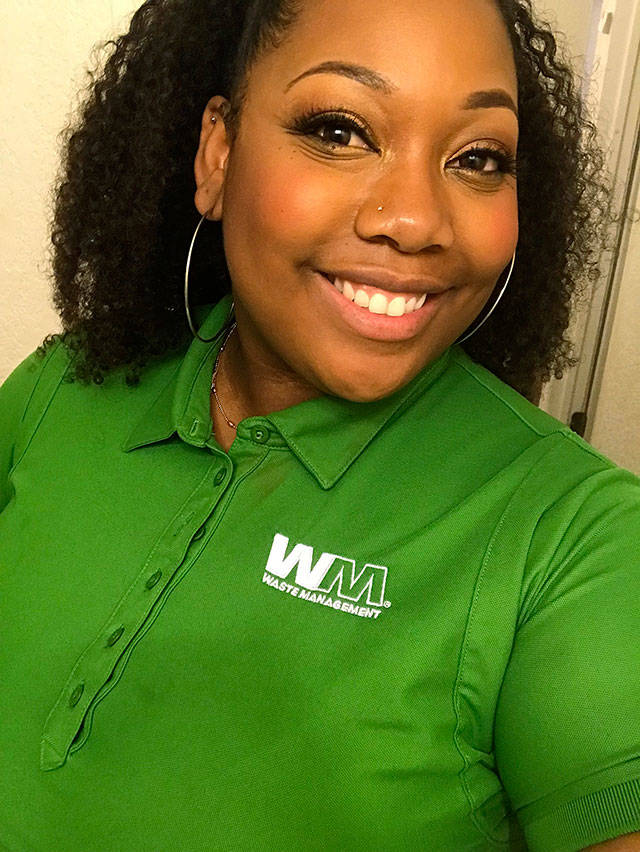By Denaya Shorter, Waste Management, for the Auburn Reporter
I asked my 84-year old grandmother if she was going to start composting again at her new house. She stared back at me as if I was speaking another language. You see, it wasn’t that my grandma didn’t know what composting was, she just didn’t use that term.
Growing up, my siblings and I would fight over who would get to feed Grandma’s worms. We would collect food scraps from our Sunday family dinners and take turns adding them to her vermicompost bin on the back patio. She would beam as she showed us her worms each week and would be sure to note how much “fatter” they were than the skinny ones at the bait shop. My grandmother also used the nutrient-rich soil in her garden, to grow organic fruits and vegetables. Grandma may not have known the words composting, food waste reduction, or recycling, but that was most certainly what she was doing.
Recycling and waste reduction look different for different communities. There’s no one size fits all.
There are cultural, generational and geographical variances that characterize why and how individual communities recycle. Waste Management understands the importance of these differences and is continuously developing innovative approaches to “crack the code” of recycling in diverse communities.
This understanding is critical to building and delivering outreach programs that meet the needs of all communities.
We must commit to meeting communities where they are. As an example, getting back to the basics of recycling helps increase understanding and widen participation. This involves focusing on paper and cardboard, aluminum cans, and plastic bottles and jugs – materials that have stable markets and, therefore, will be used to make new products.
Another reality is that many people in our communities may not prioritize recycling, due to a full spectrum of factors. This is sometimes the situation for multifamily communities, newcomers to the United States, those fighting for environmental and social justice, elders and differently-abled residents. It can also be true for multi-ethnic residents who do not speak English, for those whom English is not their first language and for low-income individuals and others.
WM’s recycling outreach team understands these potential barriers and is trained to provide culturally appropriate programs that make waste reduction and recycling accessible to everyone. In fact, the WM team that serves Auburn has won national recognition for our expertise in multicultural outreach.
Central to our work in Auburn is the premise that it takes many languages, different approaches, and everyone working together to make sustainability inclusive and impactful. It’s a bit like how things worked on grandma’s back patio. The language was different, and yet the challenge was the same: It took many hands to make a happy worm bin.
Denaya Shorter is an education and outreach coordinator for Waste Management, based in Auburn. She has her MA in Urban Environmental Education from Antioch University in Seattle and a BS in Biology and Ecology from Fresno State in Fresno, California. Her work and writing focus on the intersection of environmental sustainability, education and social justice.


